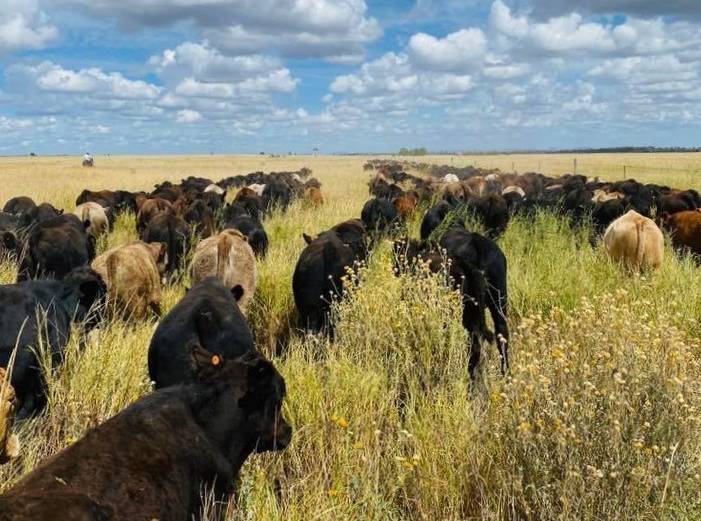
ANZ and AACo join Global Roundtable for Sustainable Beef
Big beef producer Australian Agricultural Company and the Australia and New Zealand Banking Group have teamed with the likes of the WWF, meat business JBS and animal health giant Zoetis to join the Global Roundtable for Sustainable Beef.
The roundtable is a worldwide network of people and organisations committed to sustainable beef production and supply chains.
The two new Australian members will join cattle producers, processors, researchers and investors to help develop a more environmentally responsible, economically resilient, and socially beneficial global beef supply chain.
The move follows the Global Roundtable for Sustainable Beef’s launch of its international sustainability goals in June which included cutting the net global warming impact of beef by 30pc within nine years.
The GRSB has also committed to ensuring the beef value chain is a net positive contributor to nature by 2030, and to increase the adoption of animal health and welfare best practices so cattle are provided with an environment in which they can thrive.
AACo and ANZ will help achieve these goals through their membership of the sustainable beef roundtable which champions best practice, facilitates the exchange of knowledge, and fosters a collaborative approach.
The two big corporates join a growing number of Australian members of GRSB, including another recently recruited producer member Belvedere Valley and processor Comgroup Supplies, who are demonstrating the local beef industry’s commitment to developing a more sustainable global and local supply chain.
Cattle Council of Australia, Meat and Livestock Australia, the Mt Brisbane Droughtmaster stud, and University of Queensland are also part of the roundtable.
AACo is Australia’s largest integrated cattle and beef producer, and the oldest continuously operating company in Australia, established in 1824.
It owns and operates properties, feedlots and farms comprising around 6.4 million hectares of land in Queensland and the Northern Territory – roughly about one per cent of Australia’s land mass.
Big four banker, ANZ, has a presence in 33 countries including the US.
With fast-changing technologies, demographic shifts, climate change and globalization bringing both opportunities and challenges, ANZ’s aim is to encourage economic participation and encouraging sustainable growth.
The bank’s American head of food beverage and agribusiness, Vibhu Juneja, said agribusiness was a priority sector for ANZ.
“Through our financial support of the beef industry, we play a critical role in ensuring supply chains are environmentally sound, socially responsible and economically viable both here in the US and in our home markets of Australia and NZ,” he said.
“GRSB and USRSB align with our purpose and values as a bank, and this partnership is an important step forward in our commitment to sustainability and safeguarding the beef industry so it can continue to thrive well into the future.”
AACo managing director Hugh Killen said the cattle company was committed to being a leader in sustainable beef production.
“It’s is a core part of our business – we have been custodians of the lands under our stewardship across Australia, for almost 200 years,” he said.
“Environmentally and socially sustainable practices are crucial to our long-term success.
“It’s what our customers expect, but it’s also the right thing to do.
“Becoming a member of GRSB will help us improve our own sustainability practices, as well as allow us to connect with and learn from other like-minded businesses.”
Roundtable executive director, Ruaraidh Petre, said GRSB was delighted to welcome both AACo and ANZ as members.
“AACo and ANZ join a number of other Australian organisations which have become members of the Roundtable in recent years.
“It’s a sign of the growing momentum within the local beef industry to protect and nurture the earth’s natural resources.”